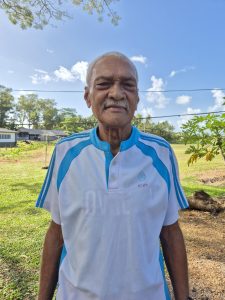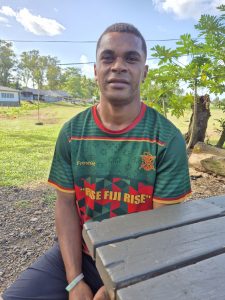
In a significant milestone for Fiji’s traditional leadership landscape, the Fiji National University (FNU)’s inaugural Diploma in Vanua Leadership (DVL) Programme, generously funded by the Australian Government’s Department of Foreign Affairs and Trade (DFAT), is designed to bridge the gap between customary values and contemporary governance. The programme, which commenced last week in Nadave, brings together 30 “Sausauvou” (future leaders) from across Fiji, marking a strategic step towards empowering the Indigenous Fijian community and reinforcing the vital role of chiefs in the country.
This initiative is a collaborative effort between FNU, the Great Council of Chiefs (GCC), and the Ministry of iTaukei Affairs, with DFAT’s support enabling this one-year diploma. The DVL aims to equip traditional leaders with the necessary skills and knowledge to enhance their roles in modern society while preserving the cultural, social, and spiritual values that are central to the indigenous Fijian way of life.
FNU’s College of Humanities, Education and Law (CHEL) Associate Dean, Dr Lavinia Tiko, highlighted the initiative as a significant step in recognising the vital role chiefs play in the nation’s social and cultural fabric and as a long-term development pathway for traditional leaders.
“The goal is to combine traditional leadership values with contemporary governance and development skills through topics like conflict resolution, environmental stewardship, and sustainable development practice,” Dr Tiko explained.
“The programme aims to improve the quality of leadership at the ‘vanua’ (land) level, enhancing their roles as custodians of their cultural heritage and as agents of change for their communities. It is designed not only for current chiefs but also as a pathway to prepare the next generation of traditional leaders,” she said.
“It also offers deep insights into the history, customs, and spiritual practices of Fijian chiefs. The course is being delivered through a blend of classroom-based learning, workshops, and field-based training. It is conducted in both iTaukei and English languages to ensure accessibility for all traditional leaders across Fiji’s provinces.”
The first cohort was selected by the “bose ni vanua” (provincial council) from each province around Fiji.

69-year-old Joji Koroilagilagi Kabakoro is the oldest participant in the programme.
The oldest participant of the programme is 69-year-old Joji Koroilagilagi Kabakoro, who hails from Naweni village in Savusavu, Cakaudrove.
With a background as a factory worker in Australia for 24 years and now a farmer in his village, he expressed eagerness to learn vital skills in conflict resolution.
“Coming from the chiefly background, it’s important to learn and preserve our tradition and cultures only which can help solve the growing social issues in the country. Right now, we have a lot of growing violence, criminal and drug related issues which I believe can be solved through the traditional customary ways,” Kabakoro said.
“I am thankful to be selected for this course. Until now, I did not have any recognised qualification. After completing this programme, I will receive a certificate that will attest to my skills and knowledge.”

21-year-old Rupeni Vesukuru is the youngest participant in the programme.
The youngest participant is 21-year-old Rupeni Vesukuru Tamani from Tavia village in Levuka, Lomaiviti Province. Tamani, whose father is the current chief of Tavia village, sees the programme as an opportunity to develop discipline and leadership qualities.
“I am here to learn discipline and how I can practice it in the future because discipline is the most important thing in life. If a person from a chiefly background is disciplined, then he will be able to make the right decision without depending on anyone,” Tamani said.
The former Saint John’s College student expressed his concern about the declining connection between traditional practices and modern life, especially among the younger generation.
“We are living in a digital age, and many young people are disconnected from our traditional and cultural practices. Children are more influenced by Western lifestyles, often forgetting their roots. This course is vital for reconnecting us with our heritage,” he added.
For more information visit the FNU website at http://www.fnu.ac.fj.
ENDS